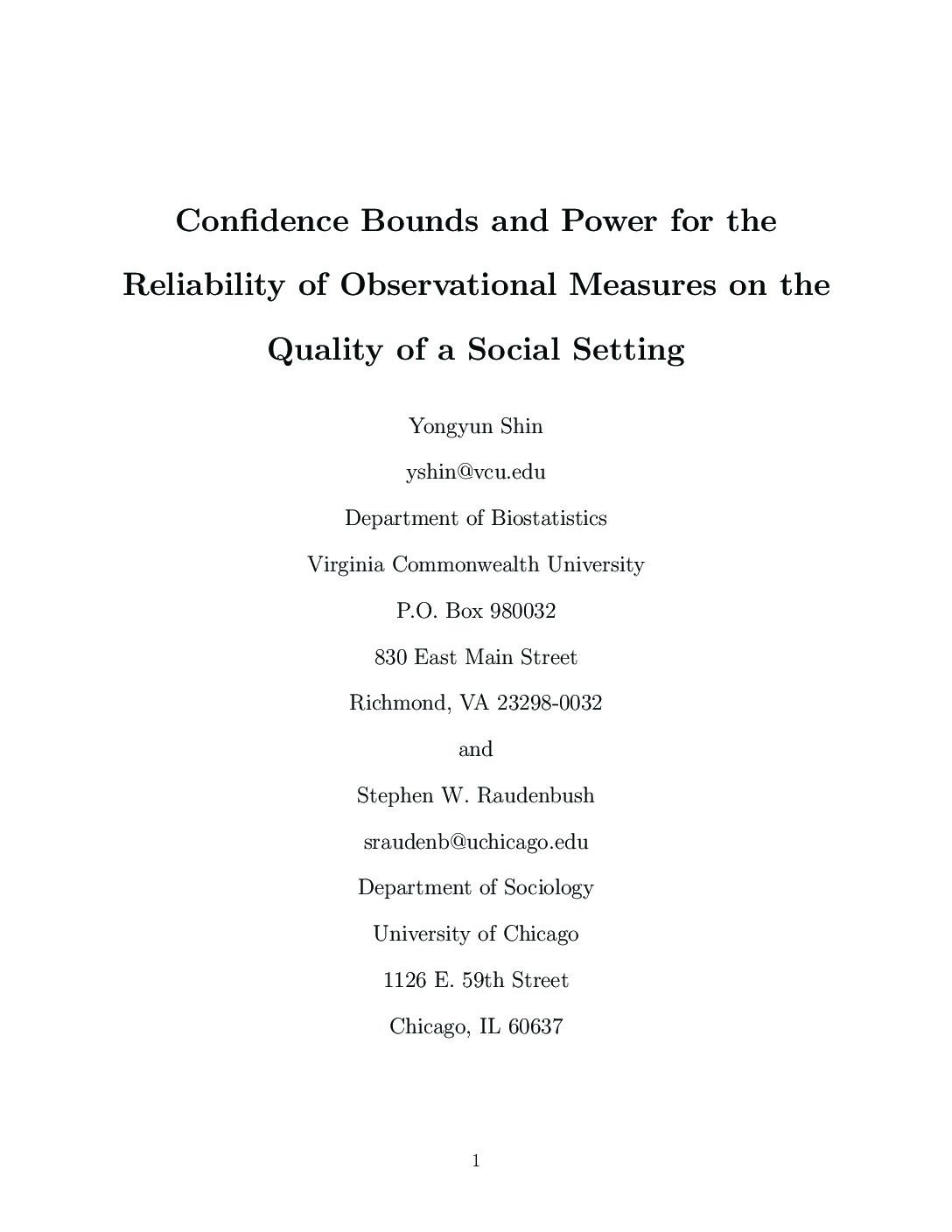Abstract
Social scientists are frequently interested in assessing the qualities of social settings such as classrooms, schools, neighborhoods, or day care centers. The most common procedure requires observers to rate social interactions within these settings on multiple items and then to combine the item responses to obtain a summary measure of setting quality. A key aspect of the quality of such a summary measure is its reliability. In this paper we derive a confidence interval for reliability, a test for the hypothesis that the reliability meets a minimum standard, and the power of this test against alternative hypotheses. Next, we consider the problem of using data from a preliminary field study of the measurement procedure to inform the design of a later study that will test substantive hypotheses about the correlates of setting quality. The preliminary study is typically called the “generalizability study” or “G study” while the later, substantive study is called the “decision study” or “D study.” We show how to use data from the G study to estimate reliability, a confidence interval for the reliability, and the power of tests for the reliability of measurement produced under alternative designs for the D study. We conclude with a discussion of sample size requirements for G studies.


